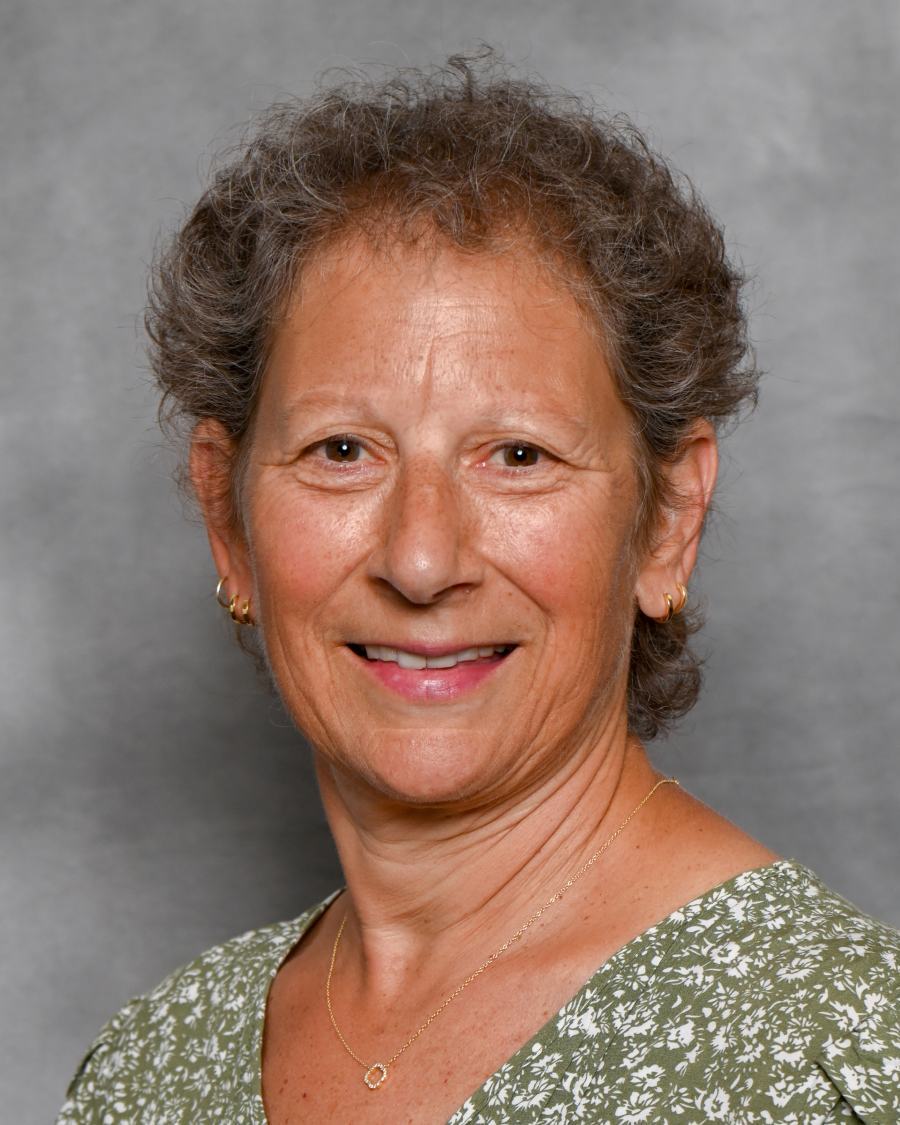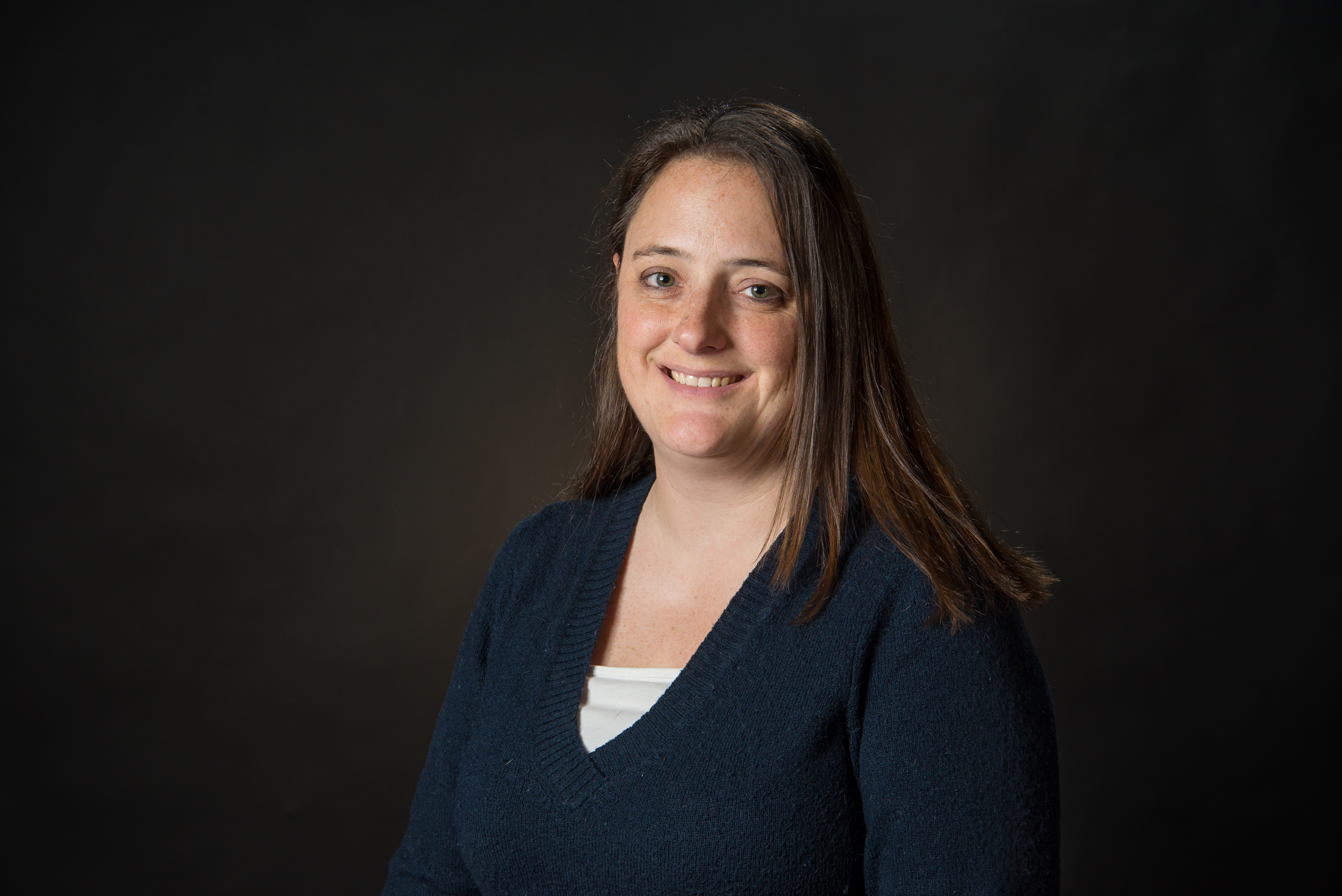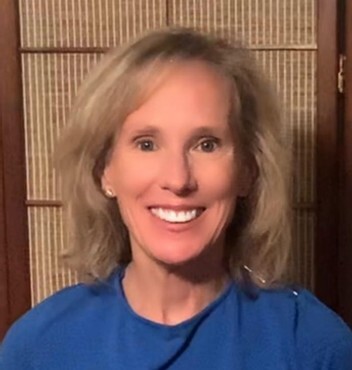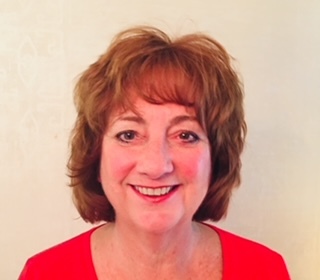
Innovations in School-Based Physical Therapy Practice (Philadelphia, July 28-29, 2023)
- Registration Closed
The 18th annual Innovations in School-based Physical Therapy Practice course offered by the APTA Academy of Pediatric Physical Therapy (APTA Pediatrics) School Special Interest Group (School SIG) highlights both advanced practice issues and foundational information for school-based practice. Sessions provide information on decision-making and educationally relevant physical therapy services to support educational programs for students with disabilities. Nationally recognized speakers address federal laws, assessment, service provision, clinical education, mentoring, and innovations in practice.
Audience
This 2-day course is intended for physical therapists who provide, or intend to provide, related services under the Individuals with Disabilities Education Act (IDEA).
Course Objectives
By the end of the course, participants will:
- Understand foundational federal laws and regulations for ensuring a free and appropriate public education (FAPE), including provision of required related services for students with disabilities under IDEA and Section 504.
- Apply evidence and data to individualize and make appropriate decisions regarding evaluation, outcome measures, models of service delivery, individualization, advocacy, and evidence-informed interventions.
- Apply knowledge gained to influence and advocate for appropriate services, staffing, adequate supports, physical activity and fitness, collaboration across practice settings and in communities, and self-determination for students with disabilities.
- Incorporate evidenced-informed evaluation and intervention for students with complex disability.
- Describe the role of school-based physical therapy in provision of assistive technology and individualized transportation services, and to prepare students and their families for adulthood through post-school transition.
Innovations Course Schedule
On Friday, concurrent sessions are offered. Participants may attend one full track or individual sessions in either track. Preregistration for sessions is not required, and participants may register for 1 or 2 days. Each day provides 7.25 contact hours of programming for a total of 14.50 contact hours for the course. The planning committee reserves the right to change presenters, content, and order of presentations. The Foundational track (Friday) will also be available virtually for a separate registration fee later in the year. The full course is offered in-person to promote networking, mentoring, and exchange of ideas. Participants report having current practices validated as an important program outcome and are encouraged and inspired by being with other physical therapy practitioners who work in schools.
Providing School-Based Physical Therapy under IDEA & Section 504
This session will provide an overview of IDEA and Section 504 as key federal laws that guide service delivery of physical therapy and other supportive services for eligible students with disabilities in public schools. We will discuss the primary requirements for educating all eligible students under IDEA, regardless of the nature or severity of their disability. The similarities and differences between IDEA and Section 504 will be highlighted as related to eligibility, service delivery, and the responsibility of PTs and PTAs in schools to provide students with services as part of their free and appropriate public education (FAPE). The session will also address the relationship between the scope of practice under each state’s Physical Therapist Practice Act and requirements of providing physical therapy services in schools. Reasonable accommodations under Section 504 and developing 504 Plans will be described, and guidance will be offered on navigating the differences between IDEA and 504. This session provides fundamental knowledge for those providing school-based physical therapy services.
Ecological Examination & Evaluation
This presentation will describe an evidenced-informed evaluation/assessment strategy for students with disabilities in schools. The session will identify the advantages of using an ecological approach to identify student strengths and needs to support educationally relevant programming. Case examples will be used to discuss this approach and its usefulness in the IEP process (including developing a present level of academic achievement and functional performance, goals, objectives and supplementary aids and services). Contribution to the PT plan of care and dosing from this approach will be reviewed.
Participation-based Student Goals
Supporting students’ meaningful participation in school activities and routines is the pinnacle aim of school-based practice; however, collaborative student goals that focus on student participation are not universally developed in school-based practice. This presentation will discuss findings and recommendations from original research regarding development and use of participation-based student goals. Strategies to promote school cultures which support a participation-focused approach to school-based physical therapy practice will also be described. Participants will receive a GOALS for Student Participation tool and other resources to support the development and use of participation-based student goals.
Educationally Relevant Physical Therapy
The scope of physical therapy in the educational setting will be described, as well as the critical role of collaboration and working as members of interprofessional teams, with students, families, and instructional personnel to support students’ access to their educational environment and school day. How school-based physical therapists deliver services in the least restrictive environment through daily school routines and clarity on our role with other stakeholders will be highlighted through interactive discussion and case studies.
Preparing Youth for Transition to Adulthood
This session will discuss how school-based physical therapists can support the transition mandates of IDEA 2004. Participants will learn how to leverage practices which predict student success- becoming engaged citizens through work, volunteer work, further education, independent and community living. A data-focused, student-centered approach will explore early planning, potential evaluation, meaningful transition activities, and community-based intervention within the IEP process. PT practitioners have important contributions to help our students lead their transition activities, focus efforts, backchain and address gaps in practical ways.
Executive Functioning, the Physical Therapist & Students with Complex Disabilities
This session will explore interventions for low incidence populations such as those with intellectual disability and autism. The focus will be on incorporating strategies to address motor learning, graded motor control, postural regulation, and regulation of mobility across the school curriculum to promote functional independence of mobility, vocational skills, and daily living skills into adulthood.
Think Like an Innovator, Be an Innovator
You, as pediatric PT, are already an innovator and a user-centered designer even if you have never used those terms to describe yourself. Effective therapists work with stakeholders to identify their needs, research existing interventions, develop novel interventions, when necessary, implement those interventions, and adapt those interventions if they are not working as intended. In this session, we will challenge you to bring that same mindset to other aspects of your treatment with a specific focus on wearable devices and parent education practices. In addition to priming you to innovate across all areas of your practice, we will share information and resources to support you and the children you work with that will include: 1) lists of adaptive or inclusive clothing and assistive technology products families report being useful; 2) a graphic highlighting key factors to discuss with families to support the prescription of wearables such as orthoses; 3) a summary of the usefulness and validity of commercial activity monitors for pediatric populations; and 4) access to our team’s do-it-yourself (DIY) manuals for products ranging from stylish saliva-wicking scarves through soft and stylish alternatives for ankle-foot orthoses.
Evidence-informed School Practice
This session will discuss the current evidence to support interventions physical therapists use in school-based practice. Participants will learn about relevant literature addressing participation, activities, and impairments. The relationship between goals, interventions, and context will be discussed. Service delivery issues will be addressed from the national study of school-based physical therapy practice, PT COUNTS.
Everything's Measurable! School-Based Tests & Measures in 15 Minutes or Less
This highly interactive session will bridge the gap between tests and measures and their applicability in the schools. Pediatric tests of mobility, balance and endurance will be presented, which are functional, require minimal materials, and can be completed in 15 minutes or less. A variety of tests will be discussed, covering a wide range of motor disabilities, from mild to severe. The most current literature will be presented to ensure reliable administration, provide statistical norms or small-group averages, and guide interpretation of test results.
Creating a Community of School-based Therapists: Clinical – Academic Partnerships & Mentorship
This session aims to support a community of school-based therapists by fostering the development of clinical-academic partnerships and mentorship among peers. Strategies to enable effective, efficient, and meaningful clinical education experiences for students, CIs, and the school community will be presented. Approaches to mentorship among colleagues to promote evidence-informed and interprofessional collaborative practice in school-based settings will be discussed. Participants will have an opportunity to share facilitators, barriers, and solutions including tips on advocacy with school administrators, teachers, and parents.
Transportation as a Related Service & the Physical Therapist's Role
Proper seating and positioning on the school bus is vital to a safe ride but takes interdisciplinary teamwork to ensure it is provided within, and is compatible with, effective vehicle occupant restraint systems. This session will explore the therapist’s role in the selection and training in the use of child safety restraints and seating, while considering common problems and students’ use of adaptive equipment on the entire transportation experience. We will review the process of designing individualized transportation plans, and the importance of physical therapist’s leadership in decision-making on modifications and accommodations in this specialized educational environment.
Participation in School Curriculum, One Size Does Not Fit All!
Recreation, fitness, and activity programming, co-curricular and extra-curricular, should be accessible to all students. Students with intellectual impairment, motor disabilities and multiple disabilities do not need the same supports to participate. A panel discussion will present experiences, strategies, and cases to highlight individualized ways school-based therapists promote participation for students across the continuum of ability.
Equipped for Practice in Public Schools
Practicing in public schools requires competence in all aspects of physical therapy and then some! To be effective in school practice requires communication and collaboration at a different level, ethical discrimination, excellent self-assessment, life-long learning, and excellent advocacy skills. This session hopes to share some practical tips and fresh approaches to address a ‘grab bag’ of issues (like IEP development, promoting physical activity for staff and students, advocating with administration for efficiency, utilizing data to inform and building relationships). Let’s hear what has been effective to enact change from around the U.S. (be prepared to share), figure out how to bring it home and put it to good use.
APTA Advocacy Update
Representatives from APTA will discuss the advocacy work currently being done on behalf of school based physical therapists and physical therapist assistants. Legislative and regulatory advocacy will be discussed, including our work with congress and the department of education on special education issues. Information will also be provided on how APTA members and nonmembers can stay involved in advocacy and help the association drive policy change as well as influence policy in their own state and local communities.
Platform Presentations
Various topics (e.g., special interest, research) related to school-based practice will be presented in 15-minute sessions by multiple speakers. Topics will be posted in July.

Mary Jane Rapport, PT, DPT, PhD, FAPTA
Mary Jane Rapport, PT, DPT, PhD, FAPTA is a Professor and serves as DPT Program Director in the Doctor of Physical Therapy Program, Graduate College of Health Sciences, at Hawai’i Pacific University, Honolulu, HI. Dr. Rapport has been a physical therapy educator and researcher for many years while continuing to provide PT services, working with children and their families, in a career spanning more than four decades. In addition to entry level DPT education, Dr. Rapport is involved in PT residency education and professional development. Dr. Rapport is serving as President (2023-2026) of APTA Academy of Pediatric Physical Therapy. She received the APTA Lucy Blair Award for service in 2009 and was selected as a Catherine Worthingham Fellow of the APTA in 2013. Dr. Rapport was named the 2023 Outstanding Physical Therapist by APTA Colorado. Dr. Rapport has more than 60 peer-reviewed publications and has experience presenting at state, national, and international conferences.

Susan Effgen, PT, PhD, FAPTA
Dr. Effgen is a Professor Emerita in the Department of Physical Therapy at the University of Kentucky. She is an established educator and researcher in pediatric physical therapy and is a Catherine Worthingham Fellow of APTA. As co-chair of APTA’s then Section on Pediatrics’ Government Affairs Committee, she was active in the process of authorization and reauthorization of IDEA. Dr. Effgen has served on several editorial boards, including Physical Therapy, and is editor of the text Meeting the Physical Therapy Needs of Children. She was co-investigator of a US Department of Education grant: PT COUNTS, Study of the Relationship of Student Outcomes to School-Based Physical Therapy Services. Dr. Effgen received the APTA Pediatrics Advocacy Award, which is now given in her name. She is the founding chair of APTA Pediatrics School SIG.

Kimberly D. Wynarczuk, PT, DPT, PhD, MPH
Kimberly D. Wynarczuk, PT, DPT, PhD, MPH, is Program Director and an Associate Professor in the School of Rehabilitation Sciences at Moravian University in Bethlehem, PA. She is a Board-Certified Pediatric Clinical Specialist (emeritus). Dr. Wynarczuk started her physical therapy career as a school-based physical therapist for 11 years and currently serves as the School-Based SIG representative to the APTA Pediatrics Research Committee. She has been a full-time faculty member in graduate-level physical therapy programs since 2011. Dr. Wynarczuk has conducted, published, and presented research on a variety of school-based physical therapy topics, including goal development and the participation of students with disabilities in school trips.

Karen Tartick, PT
Karen Tartick, PT, has been providing physical therapy services in a variety of pediatric settings, including early intervention, acute care, NICU, and in both the North Carolina and New York school systems. Karen is an APTA Advanced Clinical Instructor and served as mentor for the school-based portion of the pediatric residency program at the University of North Carolina at Chapel Hill, and Duke University Health System. Karen contributed to several fact sheets on behalf of the APTA Pediatrics School SIG. Karen presents nationally on various topics, including motor needs for children with autism, embedding physical therapy interventions in school settings, adaptive equipment for children with complex needs, and the role of school therapists in successfully transitioning from high school.

Toni Doty PT, PhD
Dr. Doty is a Board-Certified Clinical Specialist in Pediatric Physical Therapy who has worked with children for over 30 years, in the NICU, EI, and schools. She received her BS in Physical Therapy from Ohio State University, her post-professional MS in Physical Therapy from the University of Oklahoma, and her PhD in Special Education/Transition Leadership from Kent State University. Dr. Doty is a Clinical Assistant Professor in the DPT program at Walsh University. She was chair of APTA’s Taskforce on the Continuum of Care for People with Lifelong Disabilities, chair and vice chair of the Adolescents and Adults with Differing Abilities SIG of APTA Pediatrics. Dr. Doty’s research includes the impact of testing environment on gross motor performance of children, the role of physical therapists working with secondary students under IDEA, effectiveness of interventions for adults with cerebral palsy, and healthcare transition issues for adults with lifelong disability.

Rita Geddes, PT, MEd, DPT
Rita has served as a school-based physical therapist for over 30 years at the Bucks County Intermediate Unit in the Bensalem Township School District in Pennsylvania. She was the chairperson for the APTA Pennsylvania Pediatric Special Interest Group from 2007 – 2012, has been a contributing author for multiple editions of Pediatric Physical Therapy, and participated in the development of the APTA Pediatrics Guidelines for the Practice of Physical Therapy in Educational Settings. She has also served as a clinical instructor since 1989, and advocates for improved access to physical therapy services for students with low-incidence disabilities.

Angela Griffis, PT, DPT
Angela has been a physical therapist 39 years working in pediatric inpatient rehabilitation, outpatient, preschool services, early intervention, pediatric private practice, private home care practice, and residential pediatric and adult with disability services. She has been innovative in starting several pediatric programs, including Holy Redeemer Hospital and Medical Center at Princeton school-based services, and expanding many services at Woods Services. She has been a school-based physical therapist part-time and full-time all of her career. She has been adjunct faculty at Acadia University and Drexel University. She served as clinical coordinator for clinical education and continues to provide clinical affiliations in the school setting.

Michele A. Lobo, PT, PhD
Dr. Lobo is an Associate Professor in Physical Therapy and Fashion & Apparel Studies at the University of Delaware. She received her PhD in Biomechanics and Movement Science from the University of Delaware and her MPT from the Medical College of Pennsylvania and Hahnemann University. She has over 25 years of clinical and research experience in pediatric physical therapy. Her research program focuses on developing and evaluating novel interventions and rehabilitation technologies to improve outcomes for pediatric populations. Examples of those interventions and technologies include the START-Play early intervention program and the first exoskeletal garment for rehabilitation (the Playskin LiftTM). Dr. Lobo’s design work and research implement family-centered, community-based approaches with a primary focus on accessibility and knowledge translation.

Julie M. Orlando, PT, DPT
Julie is a Board-Certified Pediatric Clinical Specialist. Dr. Orlando received her Doctor of Physical Therapy from Ithaca College, and then completed the Pediatric Residency Program and Leadership in Education for Neurodevelopmental Disabilities Fellowship at the Children’s Hospital of Philadelphia. She is currently a PhD candidate in the Biomechanics and Movement Science Program at the University of Delaware with research interests in early intervention, parent education, wearable sensors, and pediatric rehabilitation interventions.

Zainab Alghamdi, PT, MS
Zainab is a pediatric physical therapist who worked in inpatient, outpatient, and home care. She received her bachelor’s degree in physical therapy from Saudi Arabia and her master’s degree in Neurorehabilitation from the University of Pittsburgh. She is currently a PhD student in the Biomechanics and Movement Science Program at the University of Delaware. Her research interests include infant development, early intervention, and rehabilitation interventions.

Carlo Vialu, PT, MBA
Carlo is the Founder and Director of www.ApplyEBP.com a provider of continuing education courses with the “perfect balance of evidence and practice.” He is a co-author and co-publisher of www.SeekFreaks.com, an evidence-informed online resource for pediatric PTs, OTs, and SLPs. From 2008 to 2017, he served the New York City Department of Education as Director of Physical Therapy, where he oversaw a program with over 700 physical therapists working in more than 1,500 schools. As a pediatric therapist, he has worked in school-based and home care settings, with children and youth with mild to more complex disabilities. He was the project manager of research on normative data for five mobility tests with school-aged children. This research has resulted in four published articles in Pediatric Physical Therapy. Carlo presents nationally on diverse topics, including tests & measures, prognostication and backward planning, motor learning, special education, and clinical decision-making.
Lisa A. Chiarello, PT, PhD, FAPTA
Dr. Lisa Ann Chiarello, PT, PhD, FAPTA is a Professor and Executive Program Director of the DPT Program at Drexel University in Philadelphia, PA and an associate member of CanChild Centre for Childhood Disability Research. Her research agenda includes the areas of pediatric community-based service delivery, engagement of families and children in rehabilitation, and participation of children with physical disabilities in home, school, and community. Dr. Chiarello has a long-standing record of national and internation presentations and has been a committed advocate for family-centered care and collaborative practices. She has conducted federally funded, multi-site research. Dr. Chiarello has had several leadership roles in the APTA Academy of Pediatric Physical Therapy. She is invested in mentoring others and promoting the translation of research knowledge to practice.

Megan Schaefer, PT, DPT
Megan is a Board-Certified Pediatric Clinical Specialist and is the Director of Clinical Education and Clinical Professor at Drexel University. She graduated from the University of Pennsylvania with a degree in bioengineering prior to receiving her master's in physical therapy from MCP Hahnemann University and her doctorate in physical therapy from Temple University. Megan has more than 25 years of experience as a pediatric physical therapist in a variety of settings. Megan has a passion for mentorship and developing excellence in clinical education having assisted in the development of integrated clinical experiences in pediatrics with the University of Delaware and establishing institutional-specific guidelines for clinical experiences at Nemours Children’s Hospital and the Children’s Hospital of Philadelphia.

Heather Brossman PT, DPT, DHSc, MS
Heather is the Assistant Director of Clinical Education and an Assistant Clinical Professor at Drexel University. She teaches cardiopulmonary and pediatric content and health promotion in the Drexel University pediatric residency. She is a Board-Certified Pediatric and Cardiovascular and Pulmonary Clinical Specialist. She worked as a school-based physical therapist full-time prior to working in academia and continues to complete evaluations for the Bucks County Intermediate Unit. Dr. Brossman completed a thesis titled “Collaborative Participation-Based Approach for Preschool Students with Multiple Disabilities: A Case Series to Support Physical Recreation” and is the current Region IV school-based SIG. Dr. Brossman authored two chapters for children with respiratory and cardiovascular impairments in Pediatric Physical Therapy. She volunteers time with advocacy groups across the lifespan to encourage, support and include individuals who are differently abled in physical activity, recreation, and exercise.

Susan Englert Shutrump, OTR/L
Susan Englert Shutrump, OTR/L is the President of Susan Shutrump Consulting, LLC and the recently retired Supervisor of Occupational and Physical Therapy Services for the Trumbull County ESC. She has more than 40 years’ experience in providing therapy services including coordinating the development of individualized transportation plans for students with special needs. She received the Peter J Grandolfo Memorial Award of Excellence in 2018 and the National Association of Pupil Transportation Sure-Lok Safe and Secure Special Needs Transportation Award in 2007. She is a Certified Child Passenger Safety Technician. She served on the NHTSA original curriculum writing committee for “Child Safety Restraint Systems on School Buses”, as well as all subsequent revision committees including being a National Subject Matter Expert on the 2023 revised curriculum. She served as Special Advisor to the STARTS (Students Transportation Aligned for Return to School) National Task Force during the Covid-19 pandemic. She is a tenured faculty and advisory board member of the National Conference and Exhibition on Transporting Students with Disabilities and Preschoolers, serving as co-chairman of the OT/PT/Transporter Forum since 1995. She has authored articles in therapy and transportation publications, and chapters, “Best Practices in Safe Transportation,” in the first two editions of (AOTA textbook) Best Practices for Occupational Therapy in Schools.

Sara Armstrong PT, DPT
Sara is a 2001 graduate of Hahnemann (now Drexel) University’s first DPT program. She has worked for 20 years with the Bucks County, Intermediate Unit in the Council Rock School District in PA. Her life’s work has been true access, integration, and participation for children with disabilities in school. She worked with the school district, special and physical education teachers to develop an adapted Physical Education program that promotes meaningful integration and participation for her students in their physical education curriculum.

Laurie Ray, PT, PhD
Dr. Ray has over 20 years of experience in school-based practice in North Carolina (NC). Dr. Ray is an Associate Professor at UNC-Chapel Hill, Division of Physical Therapy and provides the NC Department of Public Instruction with consultative services in the areas of physical therapy and Medicaid cost recovery. She previously served as chair of the School Special Interest Group (SIG) for APTA Pediatrics, on the NC Office of Disability and Health Advisory Committee and on the Boards of the National Alliance of Medicaid in Education and the NC Vocational Rehabilitation Council. Laurie is co-author/co-publisher of www.SeekFreaks.com, an evidence-informed, online resource for pediatric PTs, OTs, and SLPs. She has contributed to several Fact Sheets for APTA Pediatrics and presents on school-based physical therapy and related topics across the US. Dr. Ray currently serves the APTA Pediatrics as Practice SIGs Coordinator and is a reviewer for Pediatric Physical Therapy and Pediatric Occupational and Physical Therapy.

Brian Allen, JD
Brian is a congressional affairs specialist at APTA. He handles a diverse issue portfolio including school-based PTs/PTAs, concussion care, physical fitness, PTA differential, DoD/VA, and CHCs, among others. His duties include monitoring and responding to federal legislative developments, advocating on the association’s behalf with Members of Congress and Senators, and working with Members, Senators, and their staff to craft legislation that meets the association’s goals. Prior to joining APTA, Brian spent over five years on Capitol Hill, culminating in his role as Legislative Director and Senior Counsel to a Member of the House. He received his bachelor’s in History and Spanish from Roanoke College and his law degree from Washington and Lee University School of Law. He is a member of the District of Columbia Bar.

Rachel Miller, MPH
Rachel is a health policy and payment specialist focusing on regulatory affairs. She advocates to federal regulators on policy issues that affect the physical therapy profession while also communicating important payment and policy updates to members. Before joining APTA in 2022, Rachel worked in a county health department as a coronavirus contact tracer. She has also completed internships in government affairs with both a North Carolina state representative, and the National Association of County and City Health Officials. She obtained a bachelor's degree in public health from the University of South Florida and a Master of Public Health from the University of North Carolina at Chapel Hill.
The course will be held at Drexel University, Health Science Building, 60 North 36th Street, Philadelphia, PA.
Some daily parking will be available at Drexel University’s main parking garage, 3330 Market Street, entrance on Ludlow Street. Parking is also available at LAZ Parking at 3711 Market Street.
Transportation: Philadelphia is served by most major airlines. There is an Amtrak Station just a few blocks from the hotel and Drexel University.
From/To Airport: Taxi ($32+), train ($7), Uber, Lyft, and Super Shuttle ($27-$46) are all available. For $7 the Regional Rail’s Airport Line service train goes to and from the airport and 30th Street Train Station /SEPTA (Southeastern Pennsylvania Transportation Authority) and the Amtrak Station, just a few blocks from the hotel.
Hotel: We have a room block at the Sheraton Philadelphia University City Hotel, 3549 Chestnut Street, Philadelphia, PA 19104 (sheratonuniversitycity.com).
Click here to Book your room using the group rate for Innovations In School-Based Practice Conference
· $179/night Guest Room Rate single/double, plus taxes (currently 16.37%), July 26-30, 2023.
- Onsite Parking $20/day plus tax.
- Complimentary Wireless High-Speed Internet in all guestrooms, meeting rooms and public areas
- Room registrations close July 7- book your room early since space is limited.
If the hotel room block is full, other hotels within walking distance include The Study at University City and Inn at Penn (Hilton).
Food: Coffee/tea will be available each morning and breaks are provided both days. Meals are on your own.
Local Information: For great information on visiting Philadelphia and surrounding area visit www.visitphilly.com.
Points of interest:
https://philamuseum.org/ https://www.barnesfoundation.o...
https://www.philadelphiazoo.or... https://www.penn.museum/
https://muttermuseum.org/ https://ansp.org/ (Academy of Natural Sciences at Drexel)
2023 CEU Information for APTA Pediatrics Courses
A group of 5+ registering from the same facility will receive a 5% discount off each registration. Group registrations must occur at the same time and be paid with a single credit card or check.

